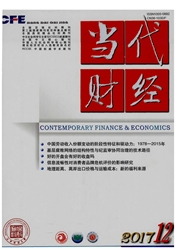

 中文摘要:
中文摘要:
国际智力流动是各国政府高度关注的问题.文章立足于中国的实际情况,讨论并验证了海外智力资本回国后,存在一个以省域为考察对象的流向性问题,且这种空间流动与通常预期的阶梯状动态存在较大差异.通过引进空间计量经济学的研究方法,分析了海外智力回流后的空间聚集效应,在考虑了空间依赖性与规模经济的前提下,研究发现:各地区政府的研发投入、经济主体对于科研活动的生产性投入,以及海外回流智力资本的知识溢出,三者的增长率与该地区知识研发的产出效果成正向相关关系,来自政府投资的效果最明显,经济主体的研发投入次之,智力资本空间溢出则效果较弱.为此,提出应鼓励海归人才均衡流动,采取多种措施,扩大对海归人员的吸引力等政策建议.
 英文摘要:
英文摘要:
The international intelligence flow is not only a hot topic of academic circles,but also the strate-gy of prospering the country with science and technology for governments.Science and technology innovation is the core competence of the modern national economic and social development.It is very important for the devel-oping country to overcome middle-income dilemma and realize economic sustainable growth.Decision of the Third Plenum of 18th CPC Central Committee stresses the need to deepen the science and technology system, improving property rights protection system.This paper,based on the Chinese current conditions,discusses and verifies the flow problem of province as the research object,after the overseas intelligence capital returning. Through the introduction of spatial econometric methods,it analyses the space aggregation effect of overseas in-telligence return.This article finds that it should get more reasonable explanation of China’s regional science and technology innovation activities,under the premise of considering the spatial dependence and scale econo-my.Finally,the paper makes policy recommendations on the technological spatial balanced development of in-telligence returning.
 同期刊论文项目
同期刊论文项目
 同项目期刊论文
同项目期刊论文
 期刊信息
期刊信息
